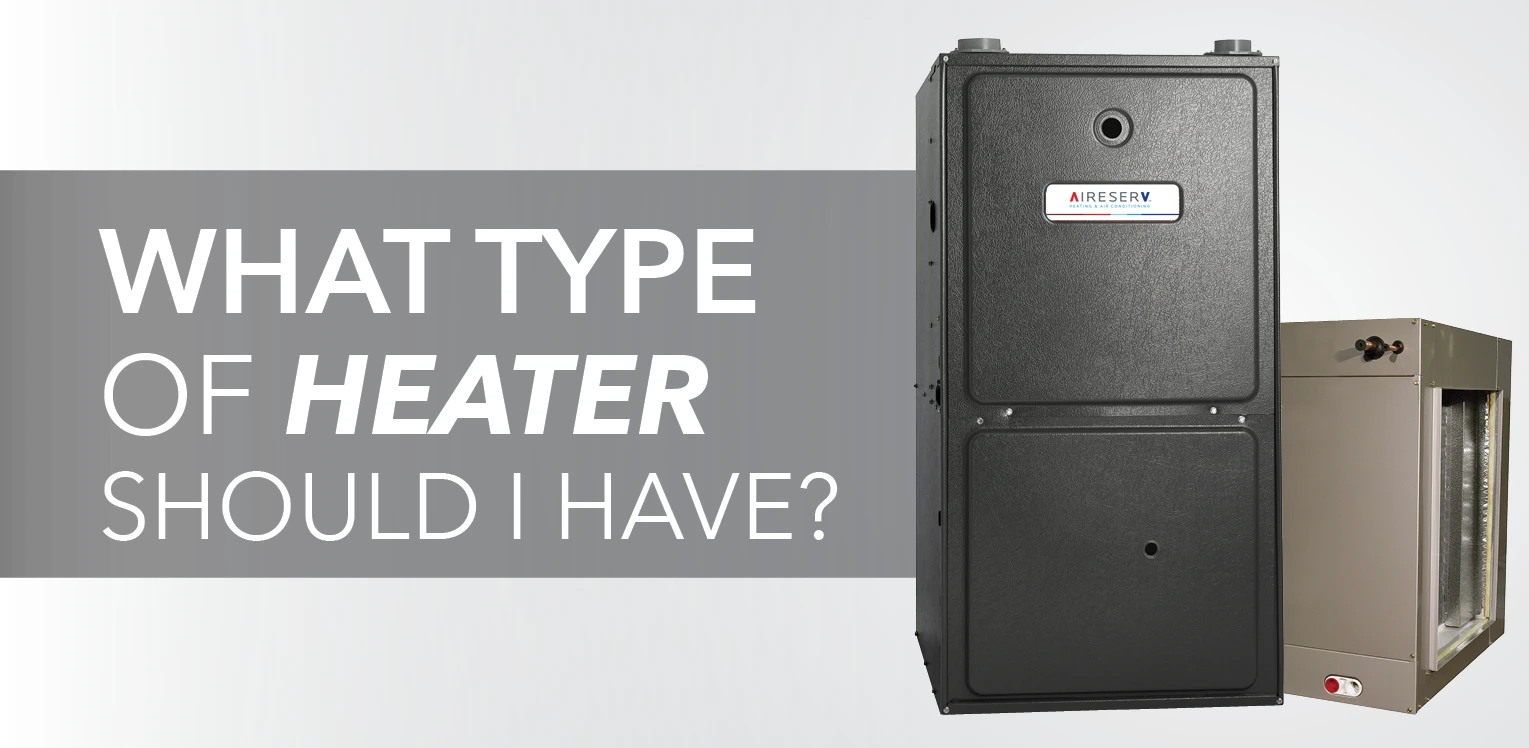What Type of Heater Should I Have?

What type of heating system should you have? That’s a loaded question, with many variables seemingly jumping in your way to thwart you from isolating your ideal system type. Luckily the experts at Aire Serv are up to the task of pointing you in the right direction, helping you identify the perfect gas heater or electric heat source to meet your home and family’s needs.
How Do I Choose?
Finding the right gas heater or electric heat source involves more than merely choosing a brand. Choosing the right type of system will ensure your comfort, as well as save fuel and energy, ultimately keeping your hard earned dollars in the bank, however there are many variables to consider...
Climate/location
To understand how climate should effect your choice, some understanding of system type is necessary…
- Furnaces
Furnaces burn natural gas, propane, oil, or use electricity to create heat for your home, which is distributed via motorized blower and ductwork. These heaters are common are colder climates. - Boilers
Boilers heat water to provide warmth using electricity, propane, natural gas or oil, then distribute the heat via pipes to steam radiators, baseboard heaters, or radiant floor systems. This type of heating system is also common in cold climates. - Heat Pump
Primarily used in moderate climates, packaged and split heat pump systems do not create heat – but simply transfer it from one location to the other: From the outdoors to the indoors in the winter (heat), and vice-versa in the summer (air). Using electricity or natural gas, these systems also distribute heat via motorized blower and ductwork. Older home? Newer ductless versions may offer an affordable option. - Geothermal
Geothermal heat pumps work the same as standard options, but consistent of components buried deep in the ground to take advantage of the earth’s constant temperatures.
Existing infrastructure
If your home already has the existing infrastructure for a boiler, it may be cost prohibitive to swap it out for a ducted furnace, or vice-versa.
Fuel sources available
Every home has access to certain utilities – or lack thereof. Different regions also experience a range of price fluctuations in fuel sources depending on availability. In southern states, for instance, the availability of heating oil is nonexistent for obvious reasons, and while it may be accessible in northern areas, natural gas may be cheaper. Here you’ll have to pull out your detective’s cap – and your phone. Here is a general breakdown:
- Electric
Electric heating systems tend to have lower purchase prices than gas options, as well as a lower risk to inhabitants (carbon monoxide). Electric systems tend to require less maintenance as well. They are, however, more expensive to operate over their lifespan. - Gas (natural, propane)
Gas heaters tend to be less expensive to operate due to lower fuel costs. They also perform better in extremely cold temperatures. On the downside, they require a larger initial investment, slightly longer installation times, and a bit more maintenance than electric heat systems to ensure safety.
Energy savings
For the utmost in energy savings, look for gas heat and electric heat systems bearing the Energy Star label. A little extra initial investment offers:
- AFUE ratings of 87% or greater for oil boilers and 90% or greater for gas boilers. Check out Energy Star’s 2016 list of most efficient boiler models.
- Energy Star certified gas furnaces used in northern locales are up to 16% more efficient than baseline models.
- Energy Star’s most efficient heat pumps have higher ratings for seasonal energy efficiency ratio (SEER), energy efficiency ratio (EER), and heating seasonal performance factor (HSPF), using about 5% percent less energy than baseline models.
- Energy Star geothermal units are over 45% more energy efficient than standard options, and through December 31, 2016 are eligible for a 30% federal tax credit.
Still unsure which gas heater or electric heat source is best for your home? The friendly professionals at Aire Serv® are here to help. Contact us today.
 Click to call
Click to call


